U.S. Marine Francis Anthony Boyle was poised to join the invasion of Japan but was sent to a devastated Nagasaki instead. What he never told his son might surprise you.
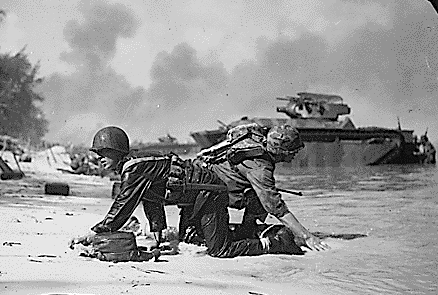
U.S. Marines on the beach at Saipan crawling under enemy fire to their assigned positions. June 1944. (USGov-Military-Marines)
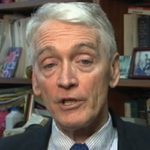 After invading Saipan, Tinian, and Okinawa as an enlisted member of the U.S. Marine Corps, my father trained to invade Mainland Japan where he was scheduled to be among the first troops ashore because of his combat experience, knowing full well that would be a suicide mission.
After invading Saipan, Tinian, and Okinawa as an enlisted member of the U.S. Marine Corps, my father trained to invade Mainland Japan where he was scheduled to be among the first troops ashore because of his combat experience, knowing full well that would be a suicide mission.
Instead of invading Japan, my father occupied Japan. According to his Marine Corps records, my father “arrived [by ship] and disembarked at Nagasaki, Kyushu, Japan” on Sept. 24, 1945. That was six weeks after the Truman administration had destroyed that entire city and incinerated 80,000 completely innocent human beings on Aug. 9 with an atom bomb.
It must have been an horrific sight for a young man from the Irish Southside of Chicago to have witnessed and dealt with. By that point of the war I know my father had become inured to inflicting death and destruction upon the Japanese Imperial Army and all of its accouterments in bitter hand-to-hand combat. Both sides fought to the death. But this scene was existentially different: a devastated city where approximately 80,000 civilians had just been exterminated in the bat of an eye by one bomb.
At the time my father must have contemplated what damage an atom bomb could do to his native City of Chicago and its beloved inhabitants.
My father proudly told me, his oldest child and namesake, all of his war stories, which were truly harrowing. But never once did my father tell me that the atomic bombings of Hiroshima and Nagasaki saved his own life. If anyone should have believed that, it would have been him.
Yet, he never once said that to me or to his war buddies in my presence. He was later elected commandant of his American Legion Post by his Fellow World War II warriors in an Irish-American neighborhood that greatly valued combat experience. He brought my mother, me, and my sister to the installation dinner and ceremony at Chicago’s famed Stockyards Inn. I had never seen him so happy and proud that evening walking around in his American Legion Uniform all night long with a big grin on his face.
Be that as it may, I grew up in an American media and cultural and educational environment that constantly propounded the myth that the atomic bombings of Hiroshima and Nagasaki had saved the lives of the U.S. invading forces, including my father. But when I got to college and studied International Relations starting in January 1970, I realized this myth simply was not at all true. And my father never propagated this myth to me though he should have like everyone else. Why not?
The Japanese government was desperately trying to surrender. The Truman administration knew full well that Japan would have surrendered (1) without the need to demolish Hiroshima and Nagasaki together with their inhabitants by atomic bombs and (2) without an invasion of Mainland Japan by my father and his comrades-in-arms.
The Truman administration dropped these two atom bombs on Hiroshima and Nagasaki in order to make it crystal clear to the Soviet Union and to everyone else around the globe that the United States of America would be in charge of running the World in the post-World War II era. So it has been ever since.
All that being said, however, with a father like that, if I do not believe the myth of the atomic bombings of Hiroshima and Nagasaki ending World War II, then why do you?
Francis Boyle is a professor of international law at the University of Illinois Urbana-Champaign. Among his many books is “Destroying World Order.”
Please Contribute to Consortium News on its 25th Anniversary
Donate securely with  PayPal here.
PayPal here.
Or securely by credit card or check by clicking the red button:

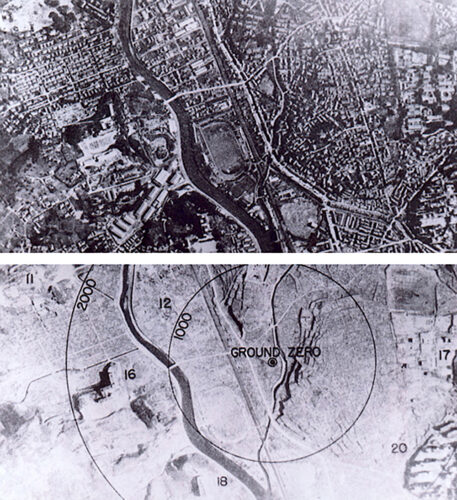
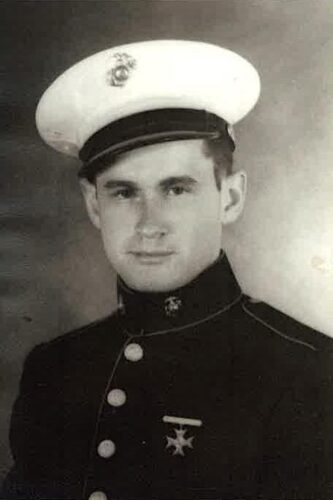
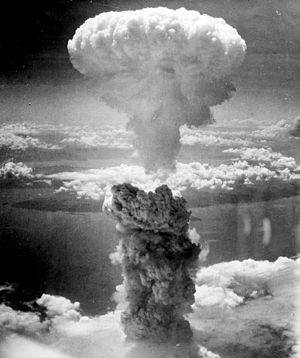
On the other hand, war is a confused mess of communications that never got through, promises and pacts broken, millions of tragic individual stories, bankers who finance the munitions of both sides as in WWI.
The atomic bombing was not nice, but as far as being ‘racist’, think Dresden, which I have heard was unnecessary. So, the argument goes on, but there is One who knows all things, and I rest my case in His mighty hands.
To the Author: Your father seems like he was a fine man.
My father was a Navy Commander and a fine man as well. I miss him still.
Lets put up a prayer, or a toast if you prefer, or perhaps best of all: both.
A prayer and a toast for “lessons learned” – May they be learned well.
All the best,
BK
Interesting article – your father certainly knew all too well what war meant, as well as the significance of the atomic bombing of Japan.
Reminds me of my father, who was a decorated U.S. Army veteran from World War II (European theater: infantry, Battle of the Bulge, etc.). Despite having considered World War II a “holy war” to rid the world of the Nazis and Fascists (having grown up in Germany, he was personally familiar with the Nazi regime), he later became a pacifist and a strong opponent of the Vietnam War. I asked him once about whether the atomic bombing of Japan had been necessary – he said certainly not, that it is was an abomination and also racist – such a weapon would have not been used against Europeans such as the Germans and Italians.
An interesting fact is that some of the most strongly antiwar people are those with direct military experience – who actually know what war means – as opposed to “chickenhawk” warmongers who are more than willing to send others fight, so long as they themselves don’t have to serve.
Probably the Red Army would have played a big role in a conventional invasion of Japan. Thry had already overrun Manchurua, and landed in the Kuriles. That’s why the Soviets were recruited to fight Japan, late in the war.